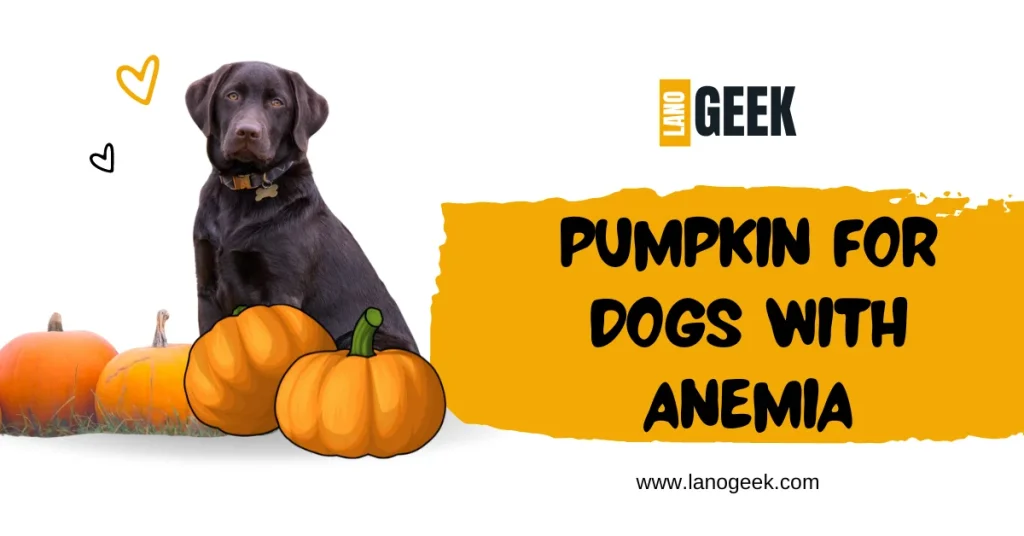In this guide, let’s talk deep into the nutritional benefits and digestive wonders of pumpkin for our furry friends. From soothing upset stomachs to providing relief for constipation and diarrheal, pumpkin emerges as a versatile superfood packed with essential nutrients. Rich in vitamins A, C, and E, along with vital minerals like iron and potassium, pumpkin contributes to overall wellbeing, supporting eye health and bone strength.
Recent read: Is Avocado Oil Safe For Dogs
Join to navigate through portion control, preparation techniques, and the potential pitfalls of commercial pumpkin products. Whether you’re seeking to enhance your dog’s diet or alleviate specific health issues, this guide equips you with the knowledge to make informed decisions. Let’s unlock the wholesome benefits of pumpkin and nurture our dogs’ health together!
Benefits Of Pumpkin
Pumpkin stands out as a digestive powerhouse for dogs, owing to its remarkable soluble fiber content. This fiber plays a pivotal role in regulating bowel movements and promoting gastrointestinal health. By adding bulk to stool, pumpkin helps alleviate common digestive issues such as diarrhea and constipation. Moreover, the fermentation of pumpkin fiber produces beneficial fatty acids that contribute to cellular energy and maintain optimal acidity levels in the large intestines. These digestive benefits make pumpkin an invaluable addition to your dog’s diet, offering natural relief for gastrointestinal discomfort.
Regulation Of Bowel Movements: Pumpkin’s high soluble fiber content aids in regulating bowel movements by adding bulk to stool. This helps to prevent both diarrheal and constipation, promoting regularity and comfort for your dog.
Alleviation Of Diarrheal: The soothing properties of pumpkin can help alleviate diarrheal in dogs. Its fiber content helps to absorb excess water in the digestive tract, firming up stools and reducing the frequency of bowel movements.
Relief For Constipation: For dogs struggling with constipation, pumpkin serves as a gentle yet effective remedy. The fiber in pumpkin adds bulk to stool, making it easier to pass and alleviating discomfort associated with constipation.
Maintenance of Optimal Digestive Function: Beyond addressing specific digestive issues, incorporating pumpkin into your dog’s diet supports overall digestive health. The beneficial fatty acids produced through the fermentation of pumpkin fiber contribute to cellular energy and help maintain the ideal acidity levels in the large intestines. This ensures the smooth functioning of the digestive system, promoting comfort and vitality in your canine companion.
Support And Gut Health
Pumpkin emerges as a prebiotic powerhouse, fostering a healthy balance of beneficial bacteria in your dog’s digestive tract. These prebiotics play a crucial role in supporting gut health and optimizing digestion. By nourishing the growth of beneficial bacteria, pumpkin contributes to a robust immune system and enhanced nutrient absorption. Let’s explore how pumpkin’s prebiotic properties promote optimal gut health for our canine companions.
Nourishing Beneficial Bacteria: Pumpkin contains prebiotics that serve as fuel for beneficial bacteria in the digestive tract. By nourishing these microbes, pumpkin promotes a thriving gut microbiome, essential for overall health and wellbeing in dogs.
Supporting Immune Function: A healthy gut microbiome is closely linked to a strong immune system. By fostering the growth of beneficial bacteria, pumpkin supports immune function, helping your dog stay resilient against infections and illnesses.
Enhancing Nutrient Absorption: Optimal digestion is crucial for effective nutrient absorption. The prebiotic properties of pumpkin help maintain a balanced digestive environment, ensuring that your dog can extract maximum nutrients from their food for optimal health and vitality.
Portion Control And Nutritional Balance
Proper portion control is key when incorporating pumpkin into your dog’s diet to ensure they receive its benefits without overconsumption. While pumpkin offers numerous health advantages, excessive intake can lead to potential issues such as nutrient imbalances and excess calorie intake. Let’s delve into the importance of portion control and how to strike a balance to optimize your dog’s nutrition.
Importance of Moderation: Moderation is crucial when feeding pumpkin to your dog. While it offers various health benefits, excessive consumption can lead to nutrient imbalances and other health issues. It’s essential to introduce pumpkin gradually and monitor your dog’s response to ensure they tolerate it well.
Recommended Serving Sizes: The recommended serving size of pumpkin varies based on your dog’s size and individual needs. Larger dogs can typically handle larger portions, while smaller breeds or puppies may require smaller amounts. Starting with 1-4 tablespoons per meal is a general guideline, but adjustments may be necessary based on your dog’s specific requirements.
Monitoring Caloric Intake: Pumpkin is a calorie-dense food, so it’s essential to consider its contribution to your dog’s overall calorie intake. Limiting pumpkin to no more than 10% of your dog’s total daily calories helps maintain a balanced diet and prevent weight gain. Be mindful of other treats and foods your dog consumes to ensure they receive adequate nutrition without excess calories.
Consulting with a Veterinarian: If you’re unsure about the appropriate portion size of pumpkin for your dog or have concerns about potential risks, consulting with a veterinarian is recommended. A professional can provide personalized guidance based on your dog’s age, weight, health status, and dietary needs, ensuring they receive optimal nutrition while minimizing the risk of overconsumption.
Conclusion
Exploring various preparation and serving options allows you to cater to your dog’s preferences and dietary needs, whether they prefer plain canned pumpkin, freshly baked pumpkin, or homemade purée. Remember to consult with your veterinarian if you have any concerns about portion control or potential risks associated with feeding pumpkin to your dog. With the right approach, pumpkin can be a delicious and nutritious treat that enhances your dog’s health and happiness for years to come. Embrace the power of pumpkin and nurture your dog’s vitality from the inside out!






